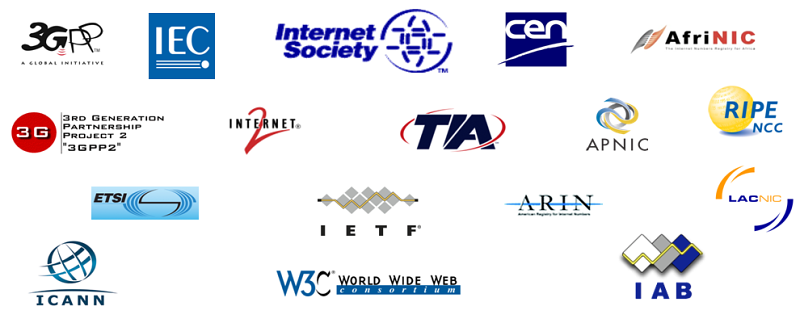You're viewing an archived page. It is no longer being updated.
The Internet Technical Community Issues Memorandum on the Future of the Internet in a Global Economy
- Principles for development of the future Internet economy announced to ministers from 30 Organisation for Economic Cooperation and Development (OECD) member states
- Internet technical community urges OECD to fuel creativity, build confidence and create maximum benefit from convergence to ensure a user-centric Internet.
Seoul, Korea, 16 June 2008 – The Internet technical community today issues a memorandum to Governments, civil society and the private sector to ensure that human capacities are enhanced or enabled through creativity and confidence and that the convergence of Internet technology is preserved.
Members of the Internet technical community have gathered from across the globe to share knowledge and perspective on how best to safeguard Internet development and innovation with attendees of the OECD Ministerial.
As OECD ministers outline a framework for government actions over the next decade, the Internet technical community urges that tomorrow's policies and practices must grow from a shared vision that will be developed as the Internet grows and continues to spur economic and social development around the world.
A multi-stakeholder model of decision making and a full commitment to adopting emerging technologies and standards are critical for long-term Internet policy development. Additionally, the memorandum calls for member states to:
- Fuel creativity by recognising that the open and decentralised nature of the Internet is fundamental for continued innovation and creativity
- Build confidence by recognising that Internet users' confidence in the stability, reliability and security of the Internet is essential to the success of the future global economy
- Maximise the benefit from convergence by ensuring that neither government regulation nor the economic power of monopolies delays or prevents growth of the Internet by limiting the provision of new, better, cheaper, faster or more innovative Internet-related services.
The open and transparent nature of Internet policy and technology development processes is intrinsic to the ongoing success of the Internet. The memorandum urges OECD member states to support the development and adoption of emerging technologies and standards to assist with the evolution of the Internet, including preparation for and uptake of IPv6 protocol.
Lynn St Amour, President and CEO of the Internet Society (ISOC) comments: “Member states must recognise that a multi stakeholder model of decision making has proven to be the most effective when it comes to Internet policy development. The Internet's future depends on a renewed commitment to the principles that have made it so successful to date. We believe that the principles outlined in our Memorandum will ensure the positive, innovative and responsible development of the Internet.
"The Internet has always been characterized by community and collaboration, not by centralized control. That continued commitment was clearly demonstrated here today.”

Notes to Editors
About the Internet technical community
The organisations participating in the Internet technical community forum come from a wide range of entities from around the world. They work with governments, national and international organizations, civil society and the private sector to pursue their objectives in a collaborative and inclusive manner. While each has its own mission and its own role to play, the Internet technical organizations are motivated by a common vision of an open and accessible Internet, bringing shared economic and social benefits to all the world's citizens.
For more information please contact:
Gerard Ross, Senior Communications Manager, Internet Society ross@isoc.org
Racepoint Group
+44(0)020 8752 2274
+44 (0)20 8752 3222